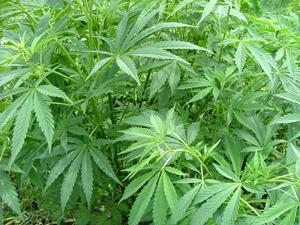Marijuana in Small Amounts Limits Damage caused by Cancer related Heart attacks
Heart Attacks and clots often result from cytotix chemotherapy. With the HOM-ACRI protocol, which includes medical cannabis, we can help to not only avoid myorcadial ischemic attacks, we can also help to mitigate the damage once it occcured.
In this perspective, the Felsenstein Medical Research Center in Israel established evidence showing that small amounts of marinuana’s TCH cannabinoid is beneficial to heart health and myocardial ischemic damage.
“A single ultra low dose of THC before ischemia [Insufficient Blood flow] is a safe and effective treatment that reduces myocardial ischemic [Heart Attack] damage.” Declared the Felsenstein Medical Research Center authorities in Israel
METHODOLOGY
Researchers administered small amounts of THC (4 times less than the intoxicating amount) to mice before simulating a heart attack by restricting their blood flow.The THC was administered on three different schedules in reference to the “heart attack”: 2 hours prior, 48 hours prior, and 3 weeks prior of continuous treatment.
In order to gauge the effect of THC in this study, researchers observed a number of common signs and/or residual effects of heart attacks. In each schedule of THC administration the study reported an improvement in each of the categories.
THE RESULTS
Fractional Shortening is a ratio used to objectively rate the level of efficiency that a ventricle is working with. In observing this ratio, researchers found that THC treatment resulted in a 4.7% increase. Troponin T is a regulatory protein found in cardiac muscle that leaks into the bloodstream in the case of cardiovascular damage. High volumes of it in the blood is often used to diagnose heart attacks. Researchers found that THC treatment reduced the amount of Troponin T by an average of 4 nano grams per milliliter. The area of dead tissue caused by insufficient blood flow decreased by 6% after THC treatment. In cases where blood is unable to reach a specific area, an infarction can form. This is an area in which the tissue dies, due to a process called necrosis. The researchers measured the size of these infarctions and found they decreased 6% after THC treatment.
Conclusion: Cannabis can be both preventive and curative regarding cardiac complications while it helps to mitigate damage after a heart attack.
For other more on Cancer and Cannabis, see blog.

REFERENCE
Journal of Biochem Pharmacol. 2013 Jun 1;85(11):1626-33. doi: 10.1016/j.bcp.2013.03.014. Epub 2013 Mar 26.
An ultra-low dose of tetrahydrocannabinol provides cardioprotection.
Waldman M1, Hochhauser E, Fishbein M, Aravot D, Shainberg A, Sarne Y.
Abstract
Tetrahydrocannabinol (THC), the major psychoactive component of marijuana, is a cannabinoid agonist that exerts its effects by activating at least two specific receptors (CB1 and CB2) that belong to the seven transmembrane G-protein coupled receptor (GPCR) family. Both CB1 and CB2 mRNA and proteins are present in the heart. THC treatment was beneficial against hypoxia in neonatal cardiomyocytes in vitro. We also observed a neuroprotective effect of an ultra low dose of THC when applied to mice before brain insults. The present study was aimed to test and characterize the cardioprotective effects of a very low dose (0.002mg/kg) of THC which is 3-4 orders of magnitude lower than the conventional doses, administered before myocardial infarction in mice in vivo. Three regimens of THC administration were tested: single THC application 2h or 48h before the induction of infarct, or 3 weeks continuous treatment before MI. All protocols of THC administration were found to be beneficial. In the case of THC treatment 2h before MI, fractional shortening was elevated (37±4% vs. 42±1%, p<0.04), troponin T leakage to the blood was reduced (14±3ng/ml vs. 10±4ng/ml, p<0.008), infarct size decreased (29±4% vs. 23±4%, p<0.02), and the accumulation of neutrophils to the infarct area declined (36±10cells/field vs. 19±4cells/field, p<0.007) in THC- compared to vehicle-pretreated mice, 24h after MI. ERK1/2 phosphorylation following infarct was also inhibited by pre-treatment with THC (p<0.01).
CONCLUSION:
A single ultra low dose of THC before ischemia is a safe and effective treatment that reduces myocardial ischemic damage.
Copyright (c) Hom Documentary and ACRI and agents.
Disclaimer: Nothing in this educational site should be contrued to be medical advise (See privacy policy and terms of use in Mission link)
Leave a Reply